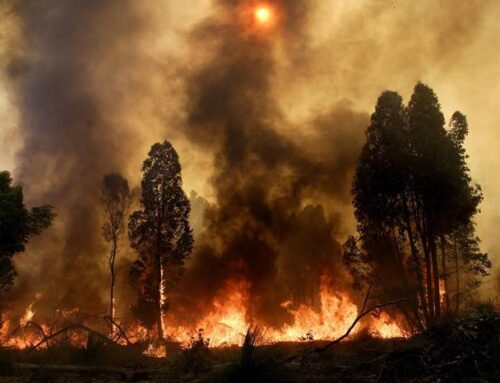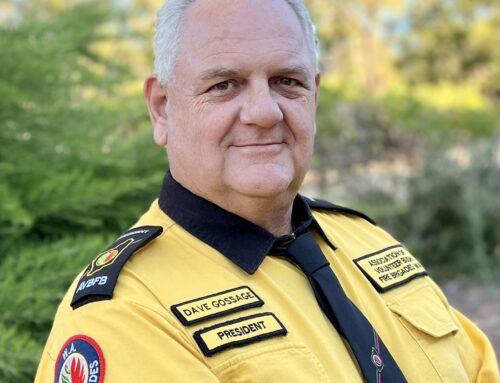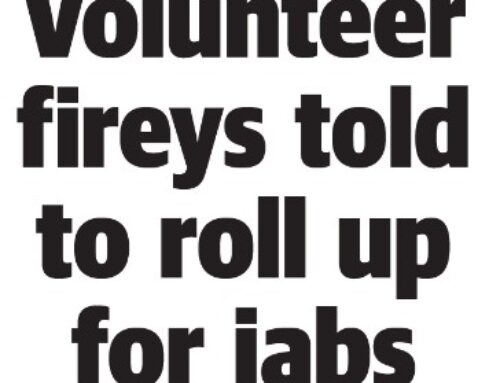A new federal agency would lead a national response to emergencies such as bushfires, pandemics and large-scale cyber attacks under a proposal being drawn up by the federal government.
The Commonwealth’s vast array of resources – including the military, communications, intelligence and logistics – would be more quickly mobilised under the changes.
The civil defence agency will be under the Department of Home Affairs and likely plug into the national cabinet so it can be made immediately available to state leaders to respond to a crisis.
The responsibility for emergency management has been a massively fraught area in state and Commonwealth relations this year. In January the NSW Rural Fire Service commissioner, Shane Fitzsimmons, said Prime Minister Scott Morrison did not inform him he was deploying 3000 army reservists to help with the bushfire crisis.
During the coronavirus crisis, there has been a dispute between Victoria and the Commonwealth over whether ADF support was offered to the state’s bungled hotel quarantine regime, while the Ruby Princess debacle exposed confusion over which state and federal agencies were responsible for allowing cruise ships to disembark.
The new agency is yet to be formally considered by the Morrison government, but senior government sources confirmed it was something they were working on and there will be a submission put to cabinet.
The Morrison government will await the findings of the Royal Commission into National Natural Disaster Arrangements, which is due to hand down its report on October 28, before announcing the new agency.
The body will bring together the emergency functions which were quickly put into place during the coronavirus crisis with Emergency Management Australia – the national body in charge of providing support for state emergency agencies.
The new agency would either take in EMA or act as a significantly expanded version of it. The agency will further expand the mammoth Home Affairs portfolio, which was created in 2017.
Professor of international security and intelligence studies at the Australian National University John Blaxland said EMA did not play a big enough role in responding to the summer’s bushfires.
He said the new body would need to more closely work with states and territories and quickly marshal together Commonwealth resources in a crisis.
“It can’t just be a federal body – it needs to be linked in very tightly with all the emergency mechanisms of the states,” Professor Blaxland said. “It would need to be given the agency and centrality to co-ordinate functions properly in a way which was sufficiently high profile for everyone to look towards.”
Professor Blaxland said any new body should not be “hidden within Home Affairs”.
“The various crises we’ve seen so far have come out of left-field, require inter-agency co-ordination and they have an international dimension – they’re not just a Home Affairs problem,” he said.
During the coronavirus, the government put in place something called the “national co-ordination mechanism” to direct the government’s responses to issues outside the direct health management of the pandemic.
Appearing before the bushfire royal commission last month, Home Affairs secretary Mike Pezzullo suggested that work was being done to combine the mechanism with EMA.
He said it was important to respond to a national crisis regardless of the cause.
“Often they are the same issues. Telecommunications are down. Food supplies have been impaired. People can’t get access to medicine. The power is out,” he said.
The government will also consider creating a permanent disaster recovery agency, rather than having to create a body to respond to each disaster such as the National Bushfire Recovery Agency.
There is a growing acknowledgement within the Morrison government that Australia will likely face more national emergencies in the coming years.
These include climate change-induced wild weather events, modern supply chains being disrupted by the pandemic and greater instability in the region caused by China’s growing assertiveness.
Anthony Galloway
https://www.smh.com.au/politics/federal/new-federal-agency-proposed-to-respond-to-national-emergencies-20200901-p55r6p.html
Note from Bushfire Volunteers
The Association supports the proposal for a new federal agency to respond to national emergencies. As previously stated in our written submission to the 2020 National Natural Disaster Arrangements Royal Commission;
Changes to Australia’s legal framework to enable this would likely result in many enhancements in natural disaster risk management, preparedness, resilience and recovery within and between every State and Territory including:
- A consistent methodology in terms of the process of review and reporting standards. This will deliver many valuable benefits including the capacity for comparative research and longitudinal evaluation of improvement across and between States.
- Unprecedented opportunity for learnings from a major incident in one State or Territory to be quickly and easily shared with, and utilised by, all others.
- Significant cost-savings to State and Territory governments. Whether real or merely perceived, there exists a problematic view that the available budget is a factor in the decision to undertake a review of any given incident and if so, the level of independence and thoroughness with which is occurs.
- Eliminate the opportunity for conflicts of interest that arise when a State Government Department undertakes a review of itself.
- A much higher likelihood of transparency and subsequent stakeholder confidence in the published report.
- Increased awareness of contemporary issues in emergency management by the Commonwealth will increase the opportunity for States to advocate for Federal Government funding and regulatory support when issues common to all States are identified.






